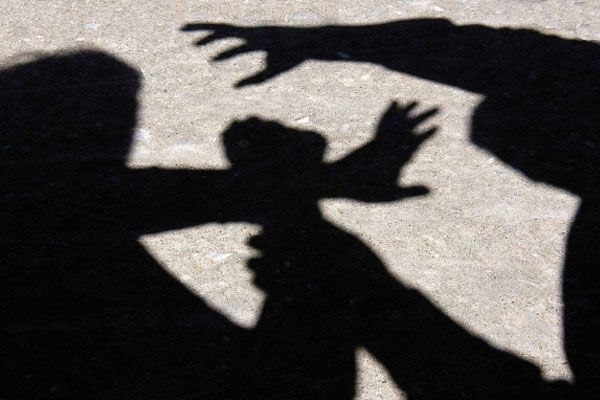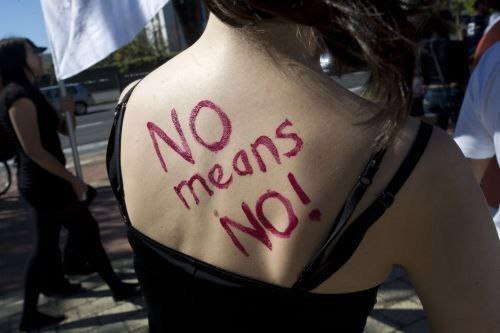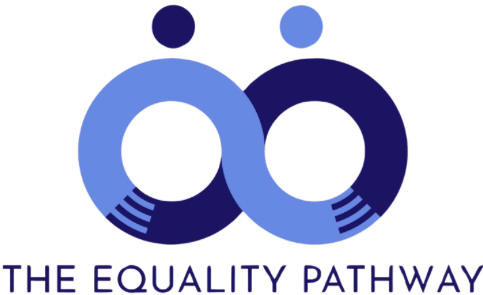What Sexual and Gender-Based Violence Looks Like

In 2015, a mother of a four-year-old reported to Esther Child Rights Foundation that her husband had been sexually violating their daughter. They had been married for 14 years and she was truly shocked that her husband would do such an evil act to his own child.
In March 2017, Rachel, a mother of four children, was raped by her children’s barber when she went to his home to collect their family clipper. Even after the pain and trauma of what she went through, she was mandated to undergo a cleansing ritual at her husband’s hometown. According to her the ritual cost about 300,000 naira, and they claimed she would bring calamity and death to her husband and children without undergoing the ritual.
Instances of sexual and gender-based violence are too numerous to be told.

Sexual and Gender-Based Violence (SGBV) is a widespread issue that affects people of all ages, genders, and backgrounds. It encompasses a wide range of harmful behaviors that targets individuals based on their perceived sex, sexual orientation, gender identity, etc.
While the exact manifestations can vary, SGBV often involves physical, sexual, emotional, and psychological harm.
Common Forms of SGBV
Physical Violence: This includes physical assault (using physical force to harm or intimidate), torture (inflicting severe emotional or physical pain).
Sexual Violence: This includes sexual assaults, forced or coerced sexual intercourse/acts, attempted rape, sexual harassment, sexual exploitation (trafficking and child sexual abuse), forced marriage or early marriage.
Psychological Violence: This includes emotional abuse (verbal abuse, insults, threats, intimidation, humiliation, or constant criticism), gaslighting, stalking (repeatedly following, watching or harassing someone), controlling behaviours (limiting access to or withholding finances thereby forcing victims to rely on the abuser for financial support, sabotaging employment opportunities).
Gender-Based Violence: This includes domestic violence (physical, emotional, or sexual abuse within intimate relationships), female genital mutilation (cutting or removing female genitalia, often as a form of “purification”), honor killings (murdering someone, usually a woman or girl, for perceived “dishonorable” behavior).
Institutional Violence: This includes discrimination (denying rights, services, or opportunities based on sex, gender, or sexual orientation, policies, laws, or practices that perpetuate harm or inequality), forced or coercive medical interventions.
While forms of SGBV can be very visible, its impacts are most often hidden and may not be noticed on time by others. It can have devastating consequences for victims. Some of them include:
Physical injuries: Bruises, cuts, broken bones, etc.
Psychological trauma: Depression, anxiety, post-traumatic stress disorder (PTSD), and substance abuse.
Social isolation: Damaged relationships, loss of social support, and difficulty trusting others
Sexually Transmitted Infections and Diseases
Speak Up!
It’s important to recognize that SGBV is not a private matter. Victims should not be blamed or shamed for the violence they experience. It is also important to recognize the gravity of SGBV and take serious actions to prevent it, support victims/survivors and hold perpetrators accountable.

- Training on comprehensive SGBV prevention and response should be integrated into educational institutions and work places.
- Establish confidential report mechanisms to ensure victims/survivors can report incidents without fear.
- Campaigns and events should be held both in the communities and social media platforms, raising awareness on the effects of SGBV and available support services. Support services may include:
- Free or low-cost legal representation.
- Counselling
- Therapy
If you or someone you know is experiencing SGBV, please reach out for help. At The Equality Pathway, we see you and stand with you. Do not hesitate to reach out to us on all social media platforms @theequalitypathway or at: Phone: +234 703 887 1619 or Email: ad***@**********th.org | eq**********@***il.com

